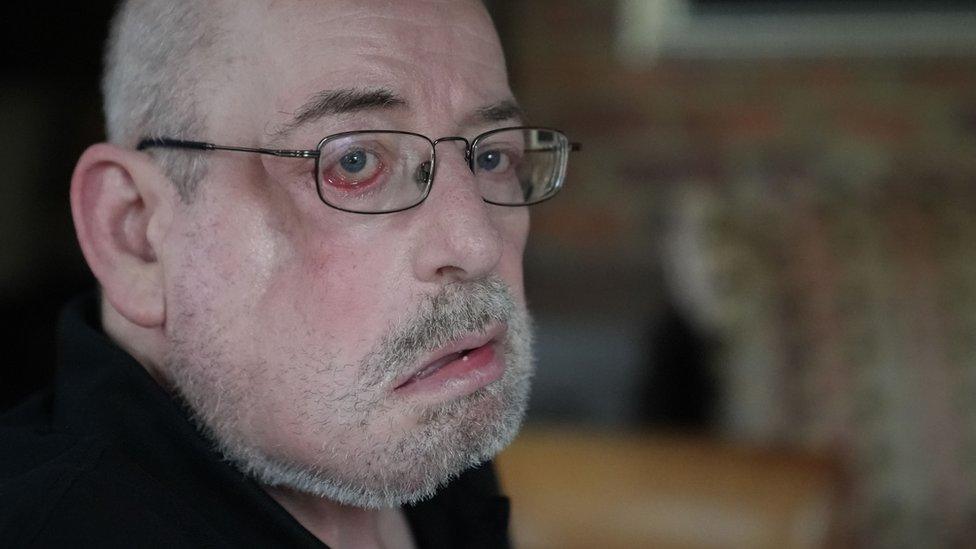Lollipops could help diagnose mouth cancer
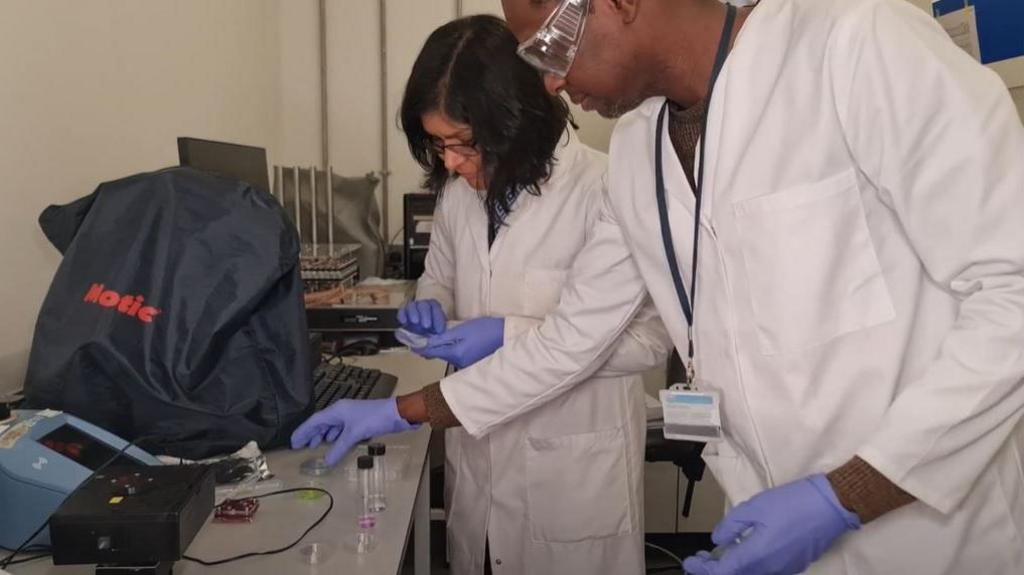
Researchers have been given funding to turn a smart hydrogel into a lollipop
- Published
Scientists are developing special lollipops designed to help diagnose whether someone has mouth cancer without using painful and invasive methods.
Researchers at the University of Birmingham have been granted £350,000 to turn a smart hydrogel that they have made into flavoured lollipops.
Doctors currently have to cut out a small piece of tissue and send it to a laboratory for testing to identify oral cancers.
As well as being less painful, it is hoped the new test could save the NHS time and money.
The hydrogel, developed by doctor Ruchi Gupta and her team, acts like a fishing net absorbing large quantities of water while catching larger molecules such as proteins.
The net can then be cut open to release the larger molecules for analysis in the laboratory.
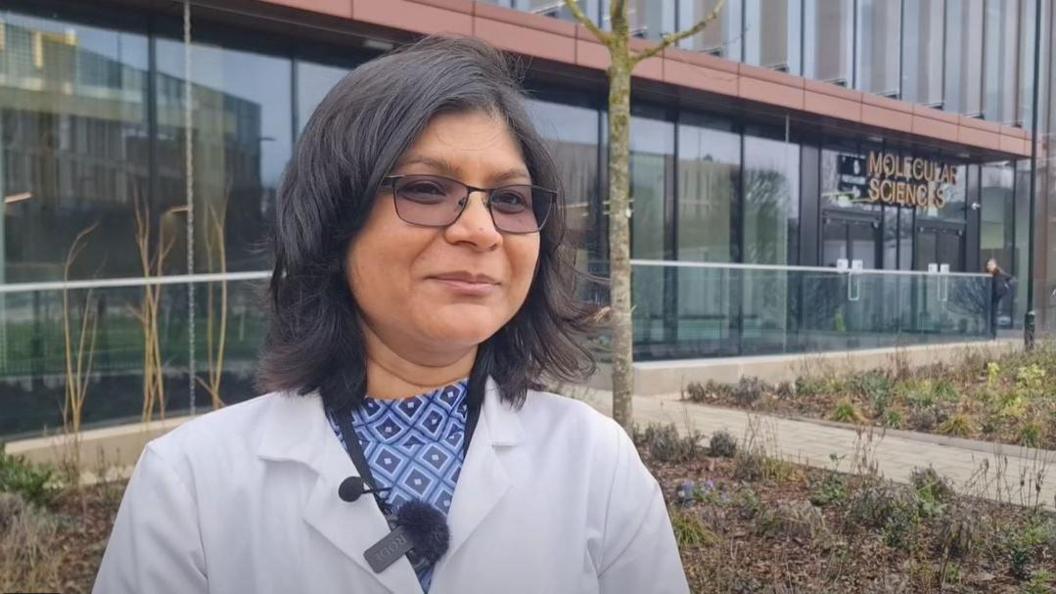
Dr Ruchi Gupta said the device was much "kinder" for diagnosing mouth cancer
Dr Gupta, associate professor of biosensors, said: "We’re really excited to start the next phase of this project.
"We’re hoping that we can be the first to make a device which is much kinder for diagnosing mouth cancer for patients and easier for GPs to use."
About 12,400 people are diagnosed with cancers of the head and neck in the UK every year.
Currently, diagnosing mouth cancer involves putting a flexible camera on the end of a tube through the nose or mouth and taking a biopsy for testing.
Mum-of-five Rachel Parsons had a biopsy for a lump in her cheek at University Hospital Coventry in 2008.
Ms Parsons, from Coventry, had to have stitches and said it was painful once the local anaesthetic had worn off.
"The thought of putting a lollipop round your mouth instead of having a biopsy in the first instance is amazing. I wish something like that had existed when I was diagnosed,” she said.
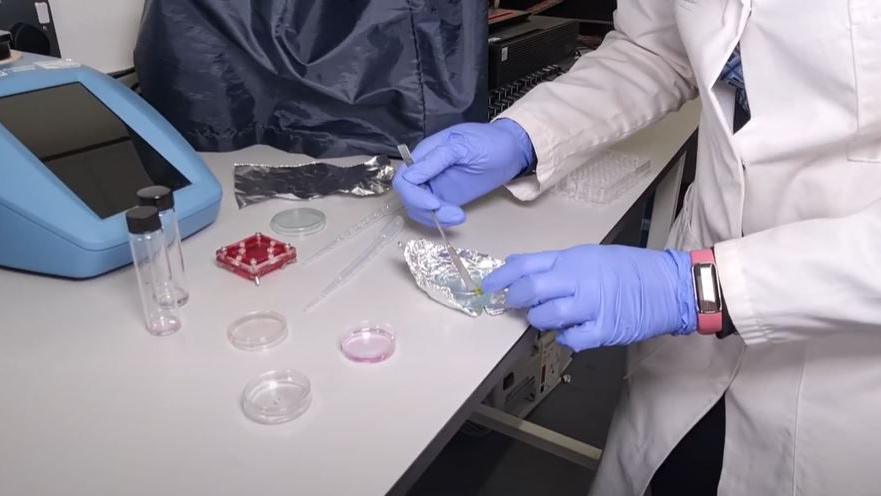
About 12,400 people are diagnosed with cancers of the head and neck in the UK every year
The £350,000 grant has been awarded over the next three years by Cancer Research UK and the Engineering and Physical Services Research Council.
Executive director of research and innovation at Cancer Research UK, Dr Iain Foulkes, said: "Biopsies and nasoendoscopy are the gold standard for diagnosing mouth cancer, but it requires great skill to carry out and can feel unpleasant for patients.
"We want an accurate, faster and kinder alternative test which can help us diagnose cases of mouth cancer sooner.
“This project is an exciting first step towards an entirely new way to identify mouth cancers earlier."
Faye Bishop, from Wolverhampton, had tongue cancer which spread to the lymph nodes in her neck.
She underwent extensive surgery as well as chemotherapy and radiotherapy and was unable to eat or speak for six months.
"If this new diagnostic tool becomes a reality, then I’m sure it will help people feel more at ease," she said.
I know the devastating effects that mouth cancer can have if not diagnosed early so anything that encourages people to get tested at the earliest opportunity is absolutely priceless."
Follow BBC West Midlands on Facebook, external, X,, external and Instagram, external, Send your story ideas to: newsonline.westmidlands@bbc.co.uk, external
Related topics
Related stories
- Published8 January 2024
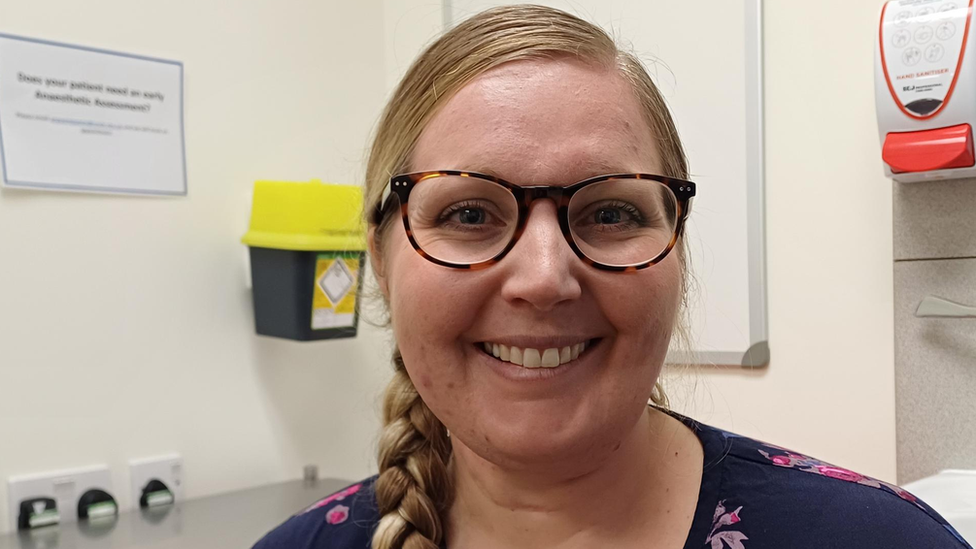
- Published8 November 2023
